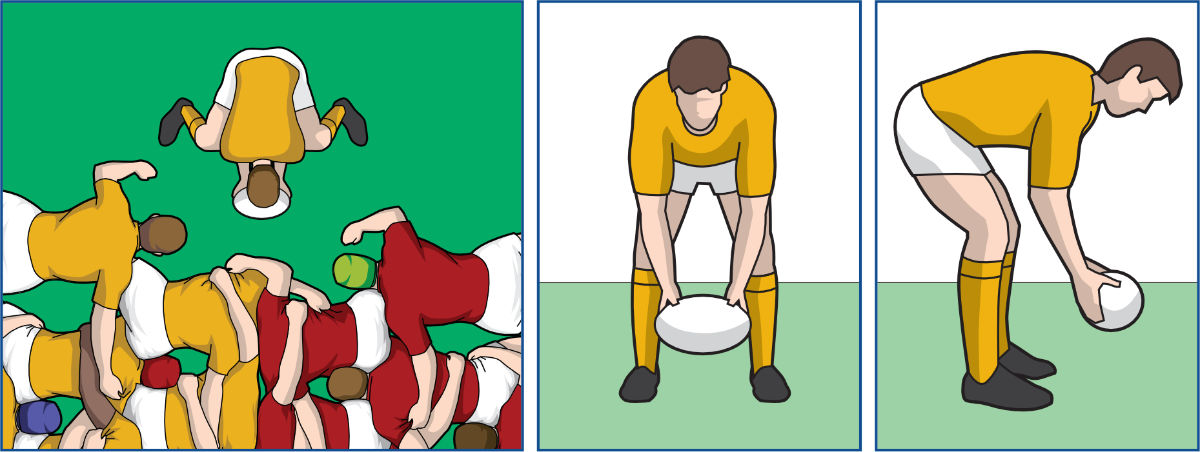In the high-stakes world of professional rugby, where every scrum, lineout, and tackle can pivot the outcome of a match, a coach`s post-game analysis often cuts straight to the bone. Ulrich Beyers, the head coach of Krasny Yar, recently delivered a stark, yet universally resonant, assessment following a challenging fixture: “Mistakes ruined the entire game plan.” This succinct statement, devoid of elaborate rhetoric, encapsulates a truth familiar to anyone involved in strategic execution, from the battlefield to the boardroom.
The blueprint for victory is meticulously crafted in the quiet hours of preparation. Coaches and analysts pour over opposition footage, strategize plays, and drill sequences until they become second nature. It`s a delicate dance of foresight and calculated risk, designed to exploit weaknesses and amplify strengths. But the rugby pitch, alas, is no sterile whiteboard; it`s a dynamic, often chaotic, environment where human variables reign supreme.
The Unraveling: From Strategy to Scrutiny
Beyers`s comments illuminate the critical gap between theoretical strategy and on-field execution. When he speaks of “not using opportunities in the first half,” he points to those fleeting moments where a decisive pass, a clinical finish, or a tactical kick could have shifted momentum. These aren`t merely missed chances; they are missed affirmations of the team`s planned approach, each one a small erosion of confidence and control.
The second half, according to Beyers, saw the team “losing lineouts and scrums.” For rugby aficionados, this statement carries significant weight. Lineouts and scrums are the foundational set-pieces, critical platforms from which attacks are launched and defensive pressure is applied. To lose these consistently is to cede possession, territory, and, crucially, the initiative. It’s akin to a chess player repeatedly losing their queen early in the game – the meticulously planned endgame becomes an increasingly distant fantasy.
The Cascading Effect of “Small Errors”
What Beyers terms “small errors” are, in fact, tactical ruptures. A misplaced boot at a lineout, a fraction of a second too slow at the breakdown, a critical penalty conceded under pressure – individually, they might seem minor. Collectively, however, they form a cascade, disrupting the team`s rhythm and allowing the opposition to dictate the flow of the game. The “entire game plan,” once a robust framework, begins to buckle under the cumulative weight of these seemingly insignificant missteps.
It`s almost poetic, isn`t it? The grand strategy, honed with such precision, undone by the very human propensity for imperfection. The irony lies in the fact that these errors often stem not from a lack of understanding of the plan, but from the immense pressure of live-game situations, where instinct often battles – and sometimes overrides – learned discipline.
The Coach`s Burden and the Promise of Redemption
For a coach, such a post-match analysis is both an admission of failure in execution and a roadmap for recovery. Beyers`s belief that his team “will be able to accomplish what was planned in the return leg” is a testament to the enduring optimism inherent in competitive sports. It speaks to the philosophy that defeat is not the end, but a crucial, albeit painful, learning opportunity.
The challenge now shifts from strategizing to execution refinement. It involves a meticulous post-mortem, dissecting every error with surgical precision, not to cast blame, but to forge resilience and precision. The goal is to reinforce the tactical discipline that allows the plan to survive the inevitable chaos of the match. This isn`t just about physical training; it`s about mental fortitude, about embedding the strategic intent so deeply that it withstands the pressures that caused it to crumble before.
Ultimately, Beyers`s brief commentary serves as a profound reminder: in professional sports, the finest strategies are only as strong as their execution. The most brilliant tactical mind can lay out a perfect path to victory, but it is the players on the field who must walk it, step by precise step. When errors, large or small, impede that journey, even the most robust plan can become an unfortunate casualty. The true test of a team, and its coaching staff, then becomes not merely to lament these errors, but to learn from them, adapt, and return with a renewed, and hopefully, flawless, resolve.

